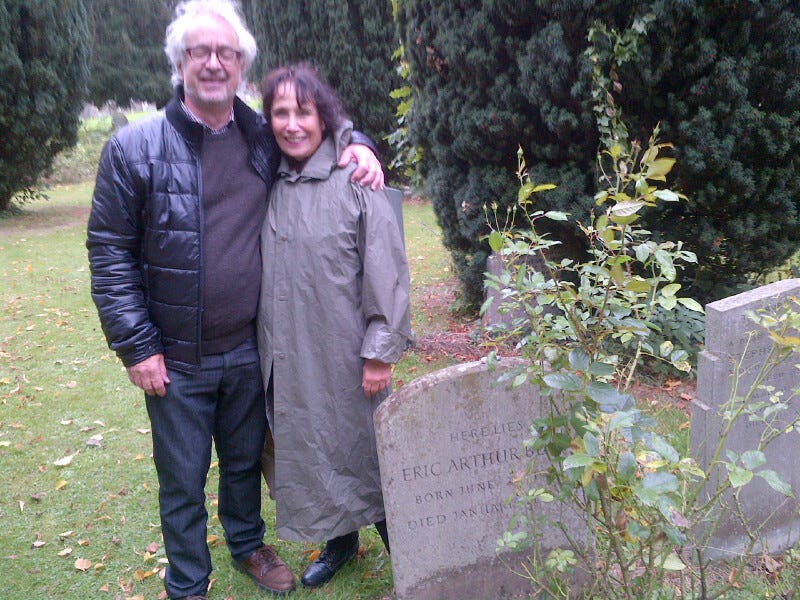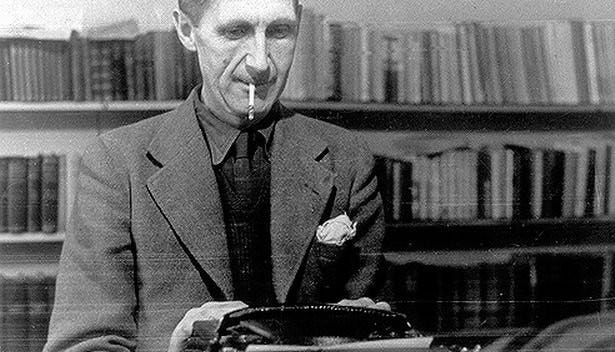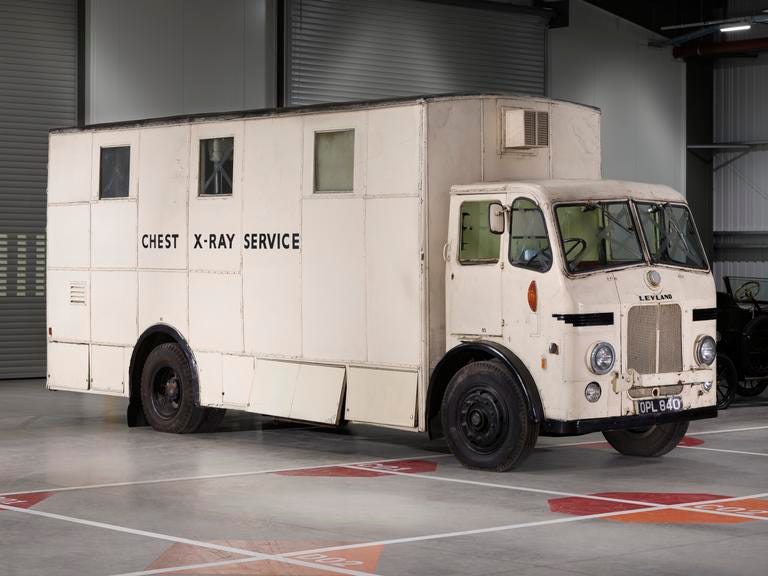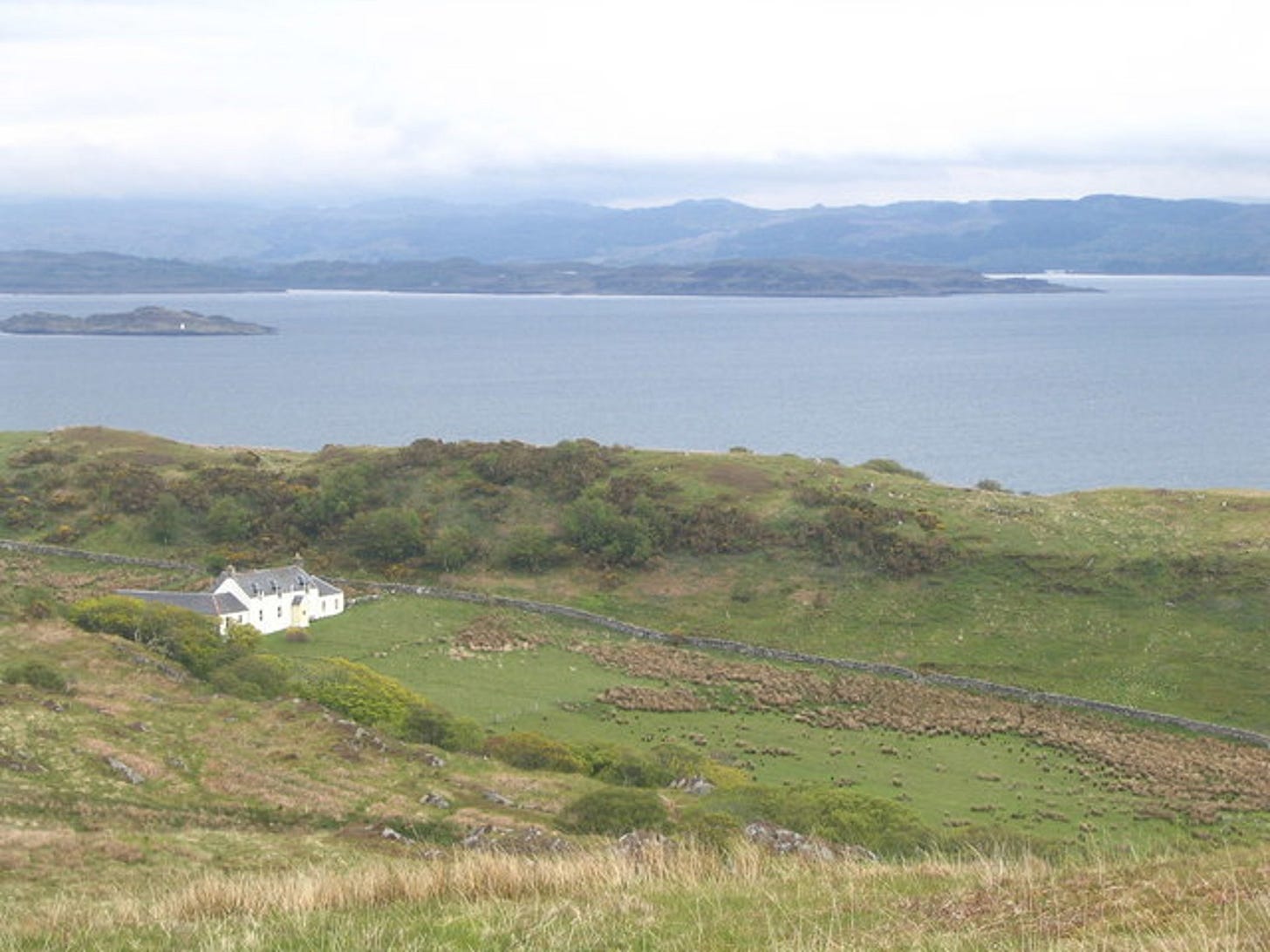The Endgame
Newsletter #79 - The Island of Jura
Port Medway, Nova Scotia, September 1, 2024
The Island of Jura
There are extraordinary things to see and there are extraordinary ways to be seen.
About ten years ago I was with a polymath friend of mine in England. One morning he asked, “What are you doing this afternoon?” “Not much,” I said. “Okay,” said my friend, “I want to show you something. I think our wives should come along.”
Soon the four of us were in a rental car whizzing down country lanes until we arrived at a village called Sutton Courtenay. “Why are we here?” I asked. “We’ve come to visit the graveyard,” he said, pulling into a small parking lot by an ancient church. It was raining.
He led us behind the church. There was the imposing tomb of Herbert Asquith, prime minister of the United Kingdom (from 1908 to 1916) in the days when Britain had a huge empire. Arguably Asquith was then the most powerful person in the world. “Ah, I get it,” I said, “the last Liberal prime minister of this country. A major historical figure. We’ve come to pay homage.”
“We’re not here for Herbert Asquith,” said my friend. We followed him some distance to a modest tombstone with a rose bush growing crookedly beside it. The tombstone read, “Here lies Eric Arthur Blair.”
Blair is better remembered as George Orwell.
“Hardly anyone these days knows anything about Asquith,” said my friend. “Most people don’t even recognize the name. Just another politician. But the whole world knows Orwell.” Looking at Eric Blair’s grave, he said, with considerable satisfaction and emphasis, “The pen is indeed mightier than the sword.”
Nineteen Eighty-Four was Orwell’s last book. He wrote it in a remote rented house on the Hebridean island of Jura, huddled over a defective paraffin stove, chain-smoking cigarettes that he rolled himself. His health was dramatically deteriorating from tuberculosis. He died in 1950, in London where he’d gone for treatment. (For an account of Orwell’s treatment, see Hilda Bastian, “Down and almost out in Scotland: George Orwell, tuberculosis and getting streptomycin in 1948”.)
In the immediate post-war years tuberculosis was common in Europe. In 1948 the disease killed more than 20,000 people in England and Wales. In an attempt to control the “white death,” the UK government implemented a program of mass screening. Mobile X-ray units were sent everywhere to detect tuberculosis cases in the general population. Orwell was familiar with this extensive surveillance programme, although there is no evidence that he was mass-screened himself. (The first formal diagnosis of his TB was in 1938, after he had fought in the Spanish Civil War.)
Government surveillance was on Orwell’s mind when he wrote Nineteen Eighty-Four. The slogan “Big Brother is watching you” is famous. Big Brother is ostensibly the leader of Oceania, a totalitarian state. Most of those who live in Oceania are constantly watched, primarily through omnipresent telescreens.
Just as there are extraordinary things to see—Eric Blair’s grave—Orwell showed us there are extraordinary ways to be seen. Big Brother is watching us intently. Surveillance by government and corporations is everywhere. There is no privacy. We all know this. Modern versions of Oceania’s telescreens are in almost every home. Cameras are ubiquitous in public spaces. Perplexity, my favourite chatbot, reports that today there are approximately 942,562 CCTV cameras in London, roughly one camera for every ten people. The average person living in London is likely to be captured on CCTV up to 70 times per day.
There were no surveillance cameras on the island of Jura when Eric Blair, a dying man huddled over the stove at his house, wrote his last novel.
*****
Some reader comments on Newsletter #78 (“Follow the money”)
One reader chastised me mildly: “When you say houses cost next to nothing, you have to realize the at the time they didn't cost next to nothing. Our first home cost $59,000 and it doesn't sound like a lot now. Between us we were making approximately $35,000. Our mortgage was at 10 and 1/4 percent! ...Yes, we paid for our daughters to go to university because we wanted them to excel and they have. And yes, we helped them buy their first home because paying rent is like throwing money away… I don't see anything wrong with our wealth going to our children and not the community.”
Another wrote: “Interesting that you chose this topic because a couple of weeks ago, I reconsidered what I had written in my will… Bottom line, I am more and more likely to re-write it and leave everything to academic institutions, charities and people I know who have little.”
An opera buff, directed me to Puccini’s Il Trittico Part III: “On the perils of inheritance, Gianni Schicchi says (sings) it all!”
A reader told this story: My wife and I have no kids… We live in a poor country with terrible schools. Without a better education, our nieces and nephews will be as poor as their parents, renting a small house but without a car, not to mention the 6-day work week without paid vacations or health insurance, much less job security, unemployment insurance, etc. As I said, it’s a poor country, one where all wealth has been for generations has been held by ruling families. So we’re paying all the health and education expenses of those nieces and nephews through college… Speaking for myself while looking back at my life, this is actually the most significant thing I’ve ever done and as such, my greatest achievement. True, it’s almost nothing from a global perspective. Nonetheless, it makes me both proud and happy to just try to make their futures a bit better.”
One reader commented: “No doubt a deliberate echo, given the timing, of Michelle Obama's wonderful line at the Democratic National Convention, 'the affirmative action of generational wealth'...”
Finally, one reader picked up on last week’s bonus feature quotation from Andrew O’Hagan’s new book, Caledonian Road: “I liked the book a great deal and have been surprised at how much it has stayed in my mind over the last couple of months… It also made me realize that when contemporaries read Trollope, they encountered characters that reminded them of actual people they knew!”
*****
A quotation from a book I am reading at the moment (an occasional bonus feature of The Endgame)
Michael Ondaatje’s new book of mostly poetry, A Year of Last Things, is beautiful. Here are a few lines from his poem “November,” about a cat who died (and other things):
Oh Jack I miss your presence everywhere
in the corners of rooms, in every chair,
or nesting in a cardboard box
Take me back where the past can again enter
those early remembered rooms, our snowbound street,
lift me upside down in your arms, I cannot stand it
I need a journey too. Have I slept my life away,
do I understand anything? Will I wear a bell
like yours into the afterlife where language
no longer exists and we gather only linked sounds
like oars from a passing boat,
those few syllables
to recall tenderness
You no longer wait for us
All day long, Basho wrote,
A lark sings in the air
Yet he seems to have had
Not quite his fill
*****
Note to readers. There won’t be an Endgame next Sunday. The next edition will be on September 14.






What an interesting column.A beautiful picture of you and your bride at Orwell’s grave AND Ondaatje’s tender poem!
One Sunday afternoon, we did exactly what you did…drove out to Sutton Courtenay to pay homage too…not to Asquith, but to Catalonia..